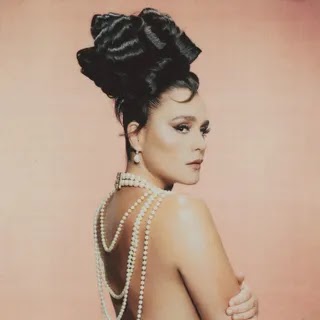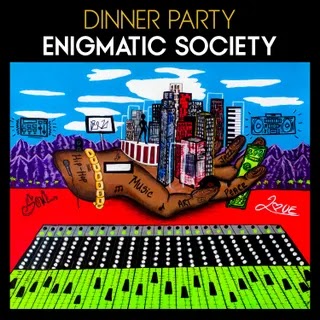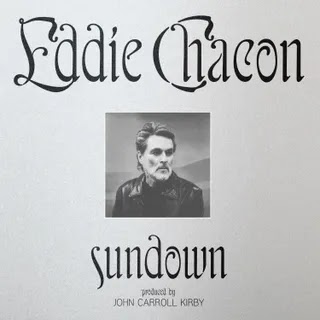Decades into their career, this J-pop superstar continues to evolve—both musically and personally. BADモード reads like a friend’s gentle reminder that we’re always coming into our own.
The path to understanding one’s identity is circuitous and without clear instructions—a never-ending process. That’s been obvious for Japanese American singer Hikaru Utada from the beginning. After their work as Cubic U proved a commercial failure, they dropped the stage name and swapped covers of the Carpenters and Burt Bacharach for something closer to their heart: R&B. Their debut album under their own name, 1999’s First Love, broke records and remains the best-selling album by a Japanese artist in Japan. In the decades since, they’ve explored various strains of dance pop, gone on a years-long hiatus, had a son, and written songs about grieving following their mother’s death. Despite all this, their latest album, BADモード (“BAD MODE”), is another reinvention, filled with moments of growth and reflection. Largely ditching the live instrumentation of their last two records for electronics and mellower pop, it favors an atmosphere of wisened, down-home warmth. Its most animating force is subtle: the knowledge that aging is an unceasing expansion and crystallization of self. Utada, who has been irrefutable J-pop royalty for more than 20 years, is still feeling themselves out, and BADモード’s depictions of love and reality—so suffused with relatable emotions—read like a friend’s gentle reminder that we’re always coming into our own.
Last year, Utada detailed their frustrations with English honorifics, signing their name Mys. Utada—short for Mystery Utada—to avoid titles that reductively identify people via sex or marital status. A week later they came out as non-binary. “I’d never come across someone who related to what I would say about how I feel about my body or gender,” they recently told Zane Lowe. “It was like a gift—the knowledge of knowing.”
BADモード doesn’t explicitly tackle gender, but it does extend a loving arm to provide a similar gift of resonating comfort. On the title track, Utada aims for disco-leaning city pop, but instead of the genre’s lively verve, there’s a muted energy fitting their thoughtful, genial concern: Their friend is depressed and they’ll do anything to help. “Here’s a diazepam we can each take half of,” they sing in a softly chipper tone, bright horns following in tow. On the earliest display of Utada’s brilliance, 1998’s “Automatic,” they spoke of a blessed serenity: being around somebody who cares for you. They model that same affection here; despite fear and difficulty, Utada sings with compassionate insistence, “When you feel low and alone, you’d better let me know.”
Utada’s objectives on these 10 tracks are clear: they want to love and be loved in completely invigorating ways. Sometimes that’s through friendship, as in “BADモード.” Sometimes it’s through a romantic partner, like on “One Last Kiss,” where their affection is so boundless that every reverberating synth affirms love’s infinitude. Sometimes it’s with someone who transcends descriptors, as on “Time,” a song originally called “Temozolomide,” after the chemotherapy drug their best friend was taking. Utada talks of confiding in someone close to them, and in a manner that isn’t possible with family members or their boyfriend, but things become confusing. They’d kissed before, and then some, but Utada wistfully confesses, “We don’t fit in this mold of romantic love.” There’s desperation and regret over this relationship, one thwarted by relationship norms and hierarchies, and every full-bodied declaration conveys fiery passion. Their missed opportunity—this irreversibility of time—is devastating.
That Utada sings in both English and Japanese is crucial to these stories’ power. They were born in New York City and have lived between the U.S., Japan, and the UK, but this album is the first to fully reflect their bilingual reality. “Find Love,” which is sung entirely in English, is a throwback vocal-house anthem partly indebted to Glenn Underground’s “May Datroit.” It’s subdued but emotive, and words roll off Utada’s tongue to deliver stream-of-consciousness cries for love and self-care. The clarity of each lyric makes the varied moods palpable, recalling the striking bluntness of Simone’s “My Family Depends on Me”; it understands the dancefloor as a site of pleasure, pain, and vulnerability.
Still, the prevailing mood across BADモード is downcast, and Utada’s most convincing portrait of everyday anhedonia is “気分じゃないの (Not in the Mood),” where they detail observations made at a café: colorful furniture, thumb-wrestling kids, a homeless woman selling poetry. Attempts at casual lyricism had been a sticking point in Utada’s past—“Keep Trying’” was too didactic, while “The Workout” overexplained the poignancy of meeting a born-again Christian. But Utada’s too distressed to force any message here, much to the song’s benefit; bleary atmospherics prevail, carried by a slow downtempo beat. To highlight their listlessness, the English-language chorus riffs on the nursery rhyme “Rain Rain Go Away.” It can seem hackneyed in its portrayal of adult depression, of yearning for a simpler time, but the maneuver is redeemed in the final passage: Utada’s son arrives to sing in a playful, carefree register reminiscent of the late Fishmans singer Shinji Sato. For a moment, the future seems bright, and the lightness of childhood joy is closer than previously imagined.
BADモード’s title refers to feeling despondent, and nine consecutive tracks of emotional turmoil can be punishing. It’s cathartic, then, for it to end with the Floating Points co-production “Somewhere Near Marseilles ーマルセイユ辺りー,” a lively Balearic house epic with acid squelches, hand percussion, and an irresistible depiction of romance. “Say I’m not the only one,” Utada repeats, avoidant and anxious of deep commitment. But the song’s too sunny, the groove too seductive; before long, Utada’s all in on this love, their voice manipulated into effervescent coos and embedded into the track’s rhythmic framework. It really captures the spirit of the city: the dynamic energy of the Old Port, the hypnotic swell of the Mediterranean, the towering grandeur of the Notre-Dame de la Garde. Inspiration can’t help but strike in a locale this rich in beauty, so across 12 minutes Utada conjures up a similarly expansive space overflowing with possibility. In their case, it’s newfound eagerness, flirty gestures, and absolute contentment—genuine breakthroughs for an album in constant search of transformative intimacy. Underlining all this is BADモード’s prevailing message: If you want to grow, your love needs to be fearless.
















0 comments:
Post a Comment